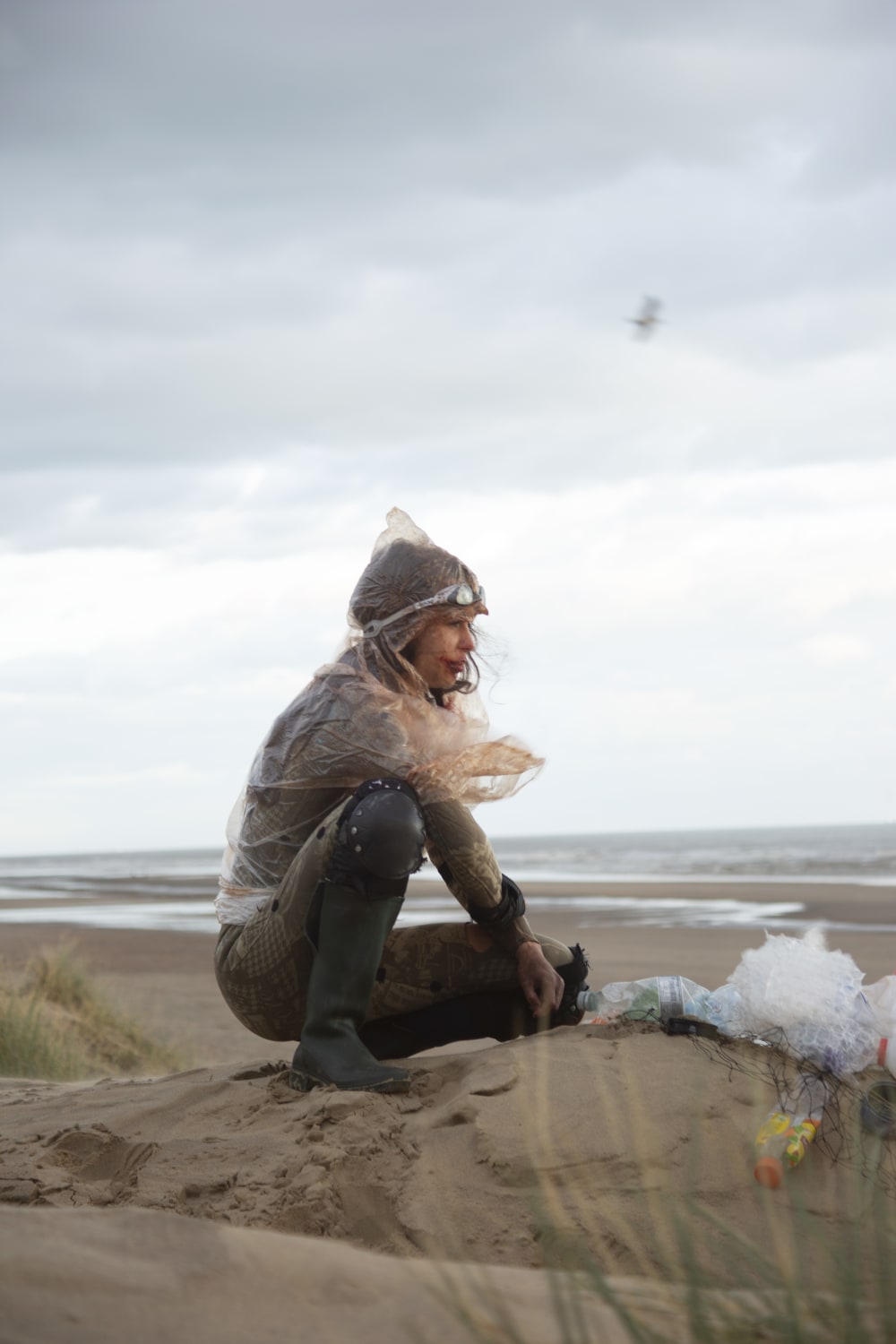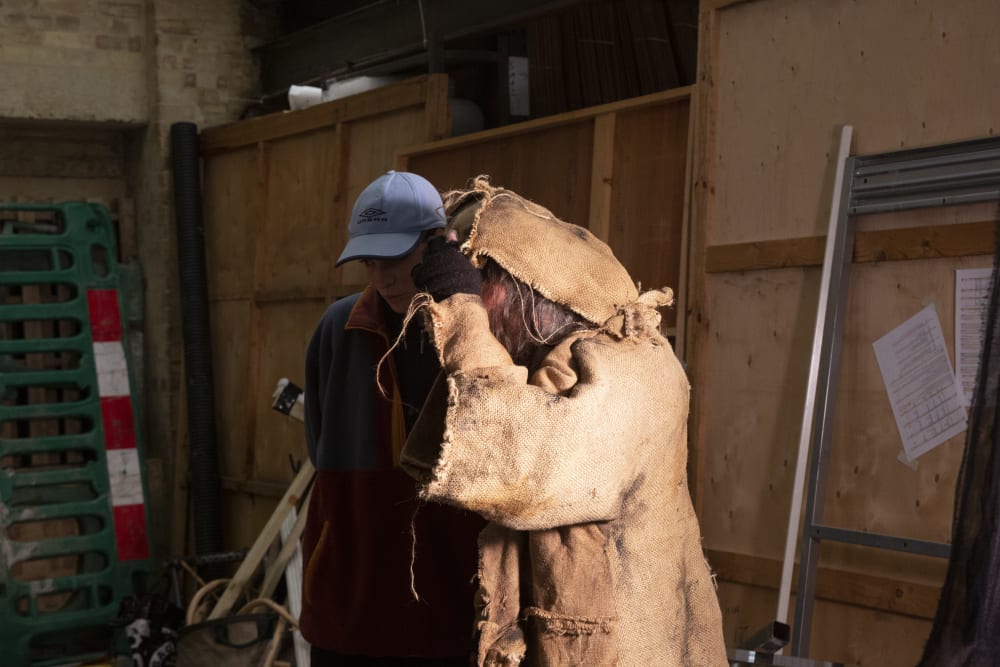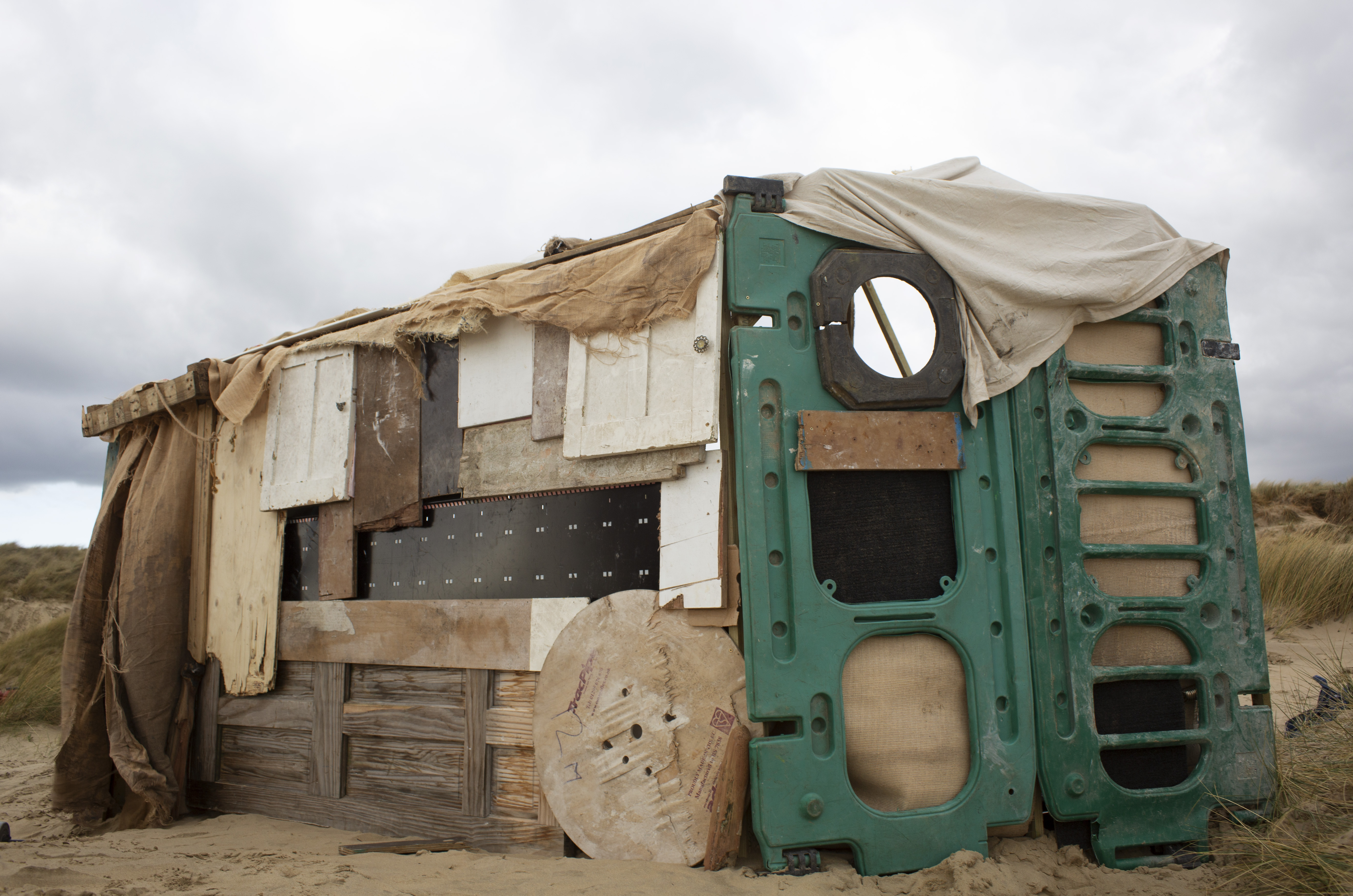We recently spoke to Lily Limmer from London College of Communication, UAL about graduating during the pandemic, and how her passion for environmental activism has helped in her new role as Sustainability Officer on the set of a new TV show.

Childhood ambitions
Being a filmmaker and being an activist requires similar traits; having the ability to question the accepted norm, and being able to challenge and to stand up for what you believe in. They also require optimism, that you can succeed in making a difference, in creating your vision.
Lily Limmer has all of these qualities. She grew up on the border of Devon, Dorset and Somerset, an area which she describes as being “the centre of the aircraft and defence industries, and also potatoes”. It’s also a place where art isn’t viewed as a viable career option; and yet despite this, she knew from a very young age that she wanted to create films, a passion that began when she got her first Flip camera.
She’s also a committed environmental activist, taking part in her first protest at the tender age of 10. She was part of a successful movement to save a 200-year-old oak tree from being chopped down. She says; “my activism was largely based around writing songs that I would sing at council meetings, which I still believe is an incredibly annoying and ergo effective method of civil disobedience.”

Time at LCC
The dream of studying filmmaking was realised in 2017 when Lily moved to London to study BA (Hons) Film Practice at London College of Communication (LCC).
The move was “like waking up in the world’s dirtiest paradise. I drank this new, grimy world up like a glass of cold water at 3 am… At LCC I wasn’t only studying a subject I cared about for the first time in my life, I was surrounded by sculptors, painters illustrators, designers, musicians. I was, to put it tritely, inspired.”
The course itself was also a balance of practical and theoretical learning, and Lily used her first 2-years to build a portfolio of skills; particularly focusing on lighting design, knowing that the end goal was always to write and direct her own film in the third year.
She spent the summer leading up to her final year preparing for the final project; writing the script with a production designer, getting the project green-lit by the university, developing the narrative and working with actors. She describes this time as being “the first time I have felt that I was using the right parts of my brain in the right way”.
During this time, Lily was also incredibly active in the Extinction Rebellion protests that took place across London in April 2019.

The film, titled Wasteland, reflected both of her passions, designed to engage with the climate emergency at every level, through the narrative as well as on the production side; “my entire crew took BAFTA Albert training and we built our set from the re-used waste collected from university campuses, local recycling centres and the streets of Peckham.
“We were able to do this because we wrote the story with the understanding that using foam board and MDF from halfway across the globe for two days of shooting was never an option.”
They’d shot about 40% of the film when everything stopped in March 2020. With no way to complete filming Lily describes the time as traumatic, being “trapped in your room with only a looming 10,000-word dissertation deadline to keep you company. No film. No portfolio. No degree show. No graduation. No friends. No cinemas. No productions. No jobs.”.
It wasn’t the final year she’d prepared for.

Graduating and job hunting during a global pandemic
After graduating, and desperate to stay in London, Lily registered for universal credit and moved into a 4x4m room and started applying for jobs; “every morning I would wake up and apply to 20 jobs. Every afternoon I would read rejection emails from 20 jobs.”
This cycle eventually became too much, and realising that she needed to change her approach, Lily had what she describes as one-person intervention.
“I wanted to make my own films, but I was also aware that this was somewhere at the top of Maslow’s hierarchy, above some really boring stuff like being able to afford food and having a room you can fit a chair in.”.
She spent a day reworking her CV, highlighting both her work as an environmental activist as well as a filmmaker, and, as if through divine intervention, the very next day she saw the listing for her current role, Sustainability Officer for a new TV show.

Becoming a changemaker
The role itself is a relatively new one in the world of TV and film; which means Lily is able to get involved in pretty much everything!
“If this was LinkedIn I would describe it as strategy, implementation and communication. I started working with the team in prep and it’s been less of a learning curve and more of a learning beeline.”
Being the Sustainability Officer on set requires a lot of drive and initiative, not dissimilar to that of an activist. You have to make the crew aware of your presence, and be willing to help out in any situation. Tasks can vary wildly each day from sourcing local, plastic-free gifts for the cast, to badgering suppliers on their procurement policies; to donating all left-over food to local food banks.
You also have to be pretty thick-skinned. Lily has implemented meat-free Mondays, which hasn’t made her particularly popular on set. “They say ‘there goes the girl who took away our bacon’ and everyone cheers.”

Initially, she saw the role as an opportunity to tide herself over until she was able to get back on her feet as a filmmaker. However, this has changed over time as the role has given her so much insight into the filmmaking process, and she can see how big a difference she can make.
“I am positive I would be able to drastically reduce the environmental impact of production. I plan to continue mitigating damage within larger productions, whilst developing my own practice as a filmmaker. It’s exciting that the working pattern of television and film allows me to pursue multiple paths.”
And it's already happening, as in the last week, Lily has successfully made the production diesel-free, potentially a first for a mainstream TV show!
"From the end of this week, we’ll be running our entire site from hydro-treated vegetable oil, made from waste feedstock, rather than red diesel which is one of the dirtiest fuels in existence. With the fuel we’re using I’m expecting to see somewhere close to a 90% reduction in greenhouse gas emissions from our generators.".
Another thing the role has highlighted for Lily is the immediate need for a new generation of filmmakers. Her advice for anyone who is currently studying film: be sceptical.
“Questioning everything you’re told is essential to filmmaking. Is that the best way to make something, or just the way it’s always been done? The destructive nature of film production goes to its very core and we need to slowly understand, undo and start afresh.
“The biggest stumbling block to making our discipline sustainable is this ludicrous idea that artistic expression comes before everything else, at all costs. It’s lazy. [Change] needs to start from the very inception of our work: if the only way that your story can be brought to the screen is through the running of red diesel generators and the shipping of fabrics from India, you need to ask yourself very honestly ‘who am I willing to let suffer for to make this?’”.

The future
This time next year, Lily hopes to be working on a new project, “something we can throw ourselves into headfirst with the potential to reimagine how films are made”.
But in the meantime, she's enjoying the ever changing needs of her role, and she hasn’t lost hope; “I look around at the destruction and devastation we’re causing and I feel depressed but then the prop-master rings me and says he's got a chest freezer full of fish that needs to be gone by tomorrow. So I find a local wildlife hospital caring for an injured seal and yes, they would love 300 kilos of fish, can it be dropped off today? Sometimes it’s not so bad”.
Helpful links and support:
- The UAL Sustainability Alumni Network is a new space for graduates that focuses on sustainability and the climate emergency, and how the arts are working to combat the most pressing crisis facing the planet. If you'd like to get involved in this network, email alumni@arts.ac.uk
- For advice on how to make a living doing what you love, head to Careers and Employability
- You can also find out more about studying BA (Hons) Film Practice at LCC, by visiting the course page.

